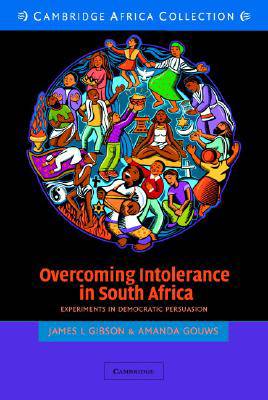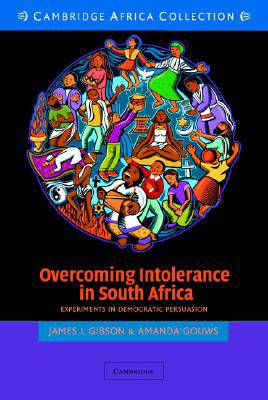
- Afhalen na 1 uur in een winkel met voorraad
- Gratis thuislevering in België vanaf € 30
- Ruim aanbod met 7 miljoen producten
- Afhalen na 1 uur in een winkel met voorraad
- Gratis thuislevering in België vanaf € 30
- Ruim aanbod met 7 miljoen producten
Zoeken
Overcoming Intolerance in South Africa South African Edition
Experiments in Democratic Persuasion
James L Gibson, Amanda Gouws
€ 79,45
+ 158 punten
Omschrijving
In Overcoming Intolerance in South Africa, Gibson and Gouws investigate the degree to which the political culture of South Africa - the beliefs, values, and attitudes towards politics held by ordinary people - impedes or promotes the consolidation of democratic reform. One set of values is of particular concern for their research - political tolerance. The authors contend that political tolerance is a crucial element of democratic political cultures in general, but that in the South African case, tolerance is perhaps more important than any other democratic value. Since South Africa is one of the most polyglot countries in the world, the only viable strategy for survival is tolerance towards the political views of others. Thus, the overwhelming emphasis throughout this book is on finding ways to enhance the willingness of South Africans to 'put up with' their political enemies, to allow open and widespread political competition, and to co-exist in their diversity.
Specificaties
Betrokkenen
- Auteur(s):
- Uitgeverij:
Inhoud
- Aantal bladzijden:
- 352
- Taal:
- Engels
- Reeks:
Eigenschappen
- Productcode (EAN):
- 9780521533621
- Verschijningsdatum:
- 24/10/2002
- Uitvoering:
- Paperback
- Formaat:
- Trade paperback (VS)
- Gewicht:
- 349 g

Alleen bij Standaard Boekhandel
+ 158 punten op je klantenkaart van Standaard Boekhandel
Beoordelingen
We publiceren alleen reviews die voldoen aan de voorwaarden voor reviews. Bekijk onze voorwaarden voor reviews.







